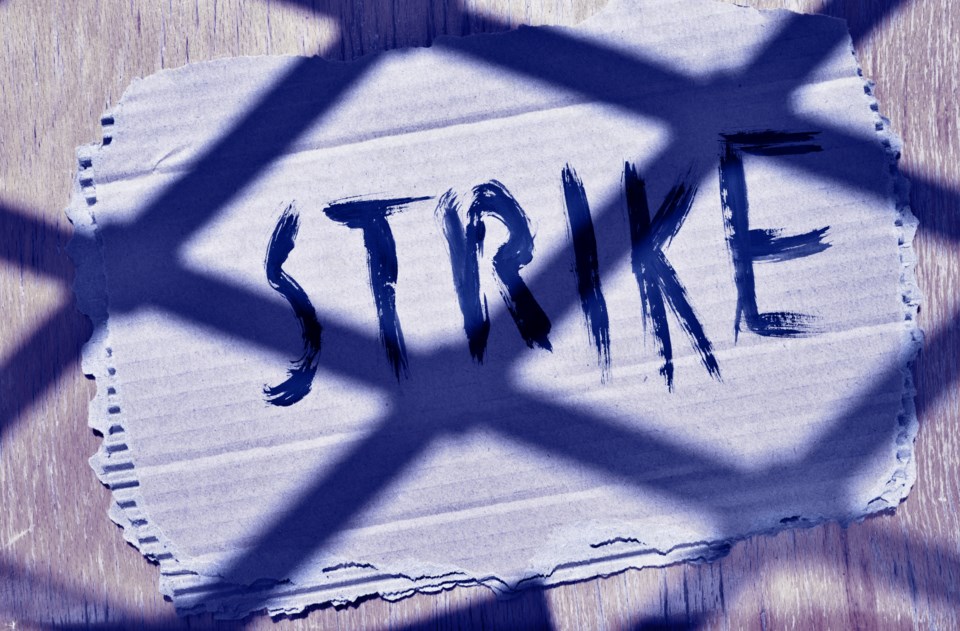The Saskatchewan Teachers’ Federation has announced more job action starting Monday, March 11, including withdrawal of extracurricular support and noon-hour supervision, with the latter action affecting Prairie South and Holy Trinity Catholic school divisions.
Meanwhile, the provincial government has announced that it has signed a new four-year agreement with the Saskatchewan School Boards Association (SSBA) that will address classroom support and add millions of dollars more.
Teachers have given notice of a three-day, province-wide withdrawal of extracurricular activities from March 11-13 and a one-day, rotating withdrawal of noon-hour supervision on March 11, the STF announced. By law, 48 hours’ notice is required for job action; however, the union is providing extra time to allow families to make arrangements.
STF president Samantha Becotte said teachers regret the continuation of job action but remained steadfast in wanting measures to address class size and complexity to be part of the provincial collective agreement.
“While this week’s funding announcement (from the province) is welcome, it does not guarantee ongoing, predictable and sustainable funding for education,” Becotte said.
“We have said on many occasions that a new collective agreement is within reach; government simply has to come to the bargaining table with a mandate to negotiate class size and complexity.”
The province-wide withdrawal of extracurricular activities on Monday, March 11, Tuesday, March 12 and Wednesday, March 13, means teachers will not provide voluntary services involved in the organization, supervision and facilitation of activities, including athletics, non-curricular arts, field trips, student travel, graduation preparations, school clubs and other activities, the union said.
Meanwhile, the withdrawal of noon-hour supervision on Monday, March 11, means STF members will not supervise students who are eating lunch at school or taking part in noon-hour activities.
Although teachers — including principals and vice principals — often provide lunch break supervision, it is done on a voluntary basis, while student supervision is the responsibility of the school division and supervisors are not required to be teachers, the STF said.
Withdrawal of noon-hour supervision will involve teachers who are members of the following local associations:
- Creighton School Division
- Holy Trinity Catholic School Division
- Horizon School Division
- Lloydminster public and Catholic school divisions
- North West School Division
- Prairie South School Division
- Prairie Valley School Division
- All schools in Saskatchewan Rivers and Prince Albert Catholic school divisions
“Teachers understand that the withdrawal of noon-hour supervision and extracurricular activities is a concern for many students and families,” the STF added.
“Parents and caregivers concerned about the impact of job action should contact their MLA and elected school board trustees and encourage the government’s bargaining committee to return to the table with a new mandate.”
More provincial funding
In a news release, the provincial government said it was committed to working with Saskatchewan’s locally elected school boards to ensure there is long-term and sustainable funding to support classrooms. It demonstrated this by signing a new agreement with the SSBA from April 1, 2024, to March 31, 2028.
The agreement guarantees a base amount of long-term funding to school divisions and signifies a shared commitment to enhancing educational outcomes and providing additional classroom support across the province, the government continued.
The agreement provides a minimum of $356.6 million per year for four years for classroom supports and increased investment into youth mental health resources, as part of a budget that marks the largest increase of $180 million to school operating funding ever.
“This agreement provides a written guarantee, signed by the government, for long-term funding for classroom supports — funding that will address important issues like classroom size and complexity,” Education Minister Jeremy Cockrill said.
“Now that our government has made this unprecedented commitment in a signed agreement, it’s time for the Saskatchewan Teachers Federation to end their job action and return to the bargaining table, so that students and teachers can return to the classroom.”
Said SSBA president Jaimie Smith-Windsor, “This agreement represents the willingness of both the Ministry of Education and school boards to work collaboratively toward solutions with some predictable and sustainable funding to back it up. These issues are best addressed at the local level, working with teachers, staff, students, parents, and families.”
This partnership formalizes a commitment to ongoing collaboration between government and school boards in supporting students across the province and establishes a new pathway to long-term funding sustainability, the government said.
This agreement also underscores a mutual recognition of the importance of local decision-making and the variety of Saskatchewan’s communities and signals strengthening relationships by providing direct investment for classrooms, it added.




